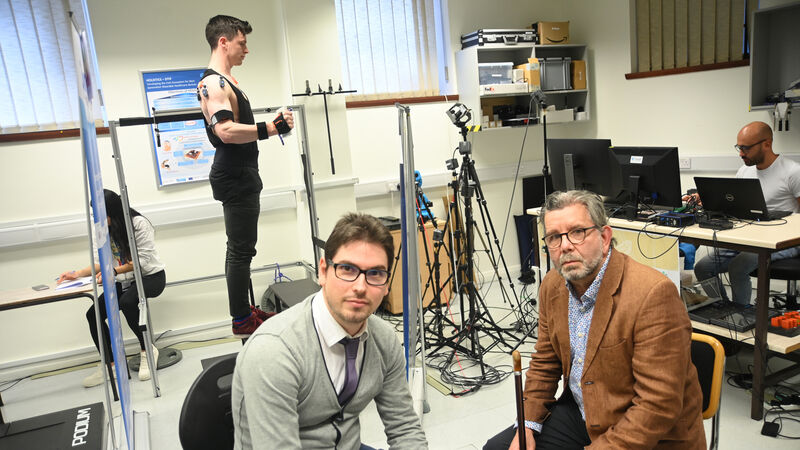Hope that Tyndall Institute's 'wearable technology' may save lives of people with Parkinson's

In a research laboratory for 'wearables' are (right) Tony Wilkinson, Chairperson, Cork Parkinson's Association and (left) Salvatore Tedesco, Senior Researcher Team Leader whose team is working on the development of wearable technology at Tyndall National Institute in Cork city. Pic Larry Cummins
An estimated 15,000 people across the country have Parkinson’s, including some 1,500 in Cork.
Tony Wilkinson, who also has Parkinson’s and is the chair of Cork's Parkinson's Association, believes that this number will double in a decade’s time. But there is hope that conditions may improve.










